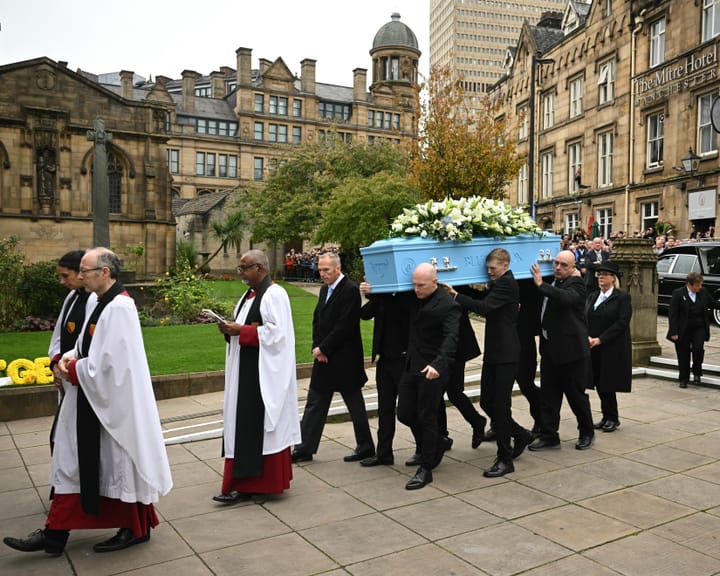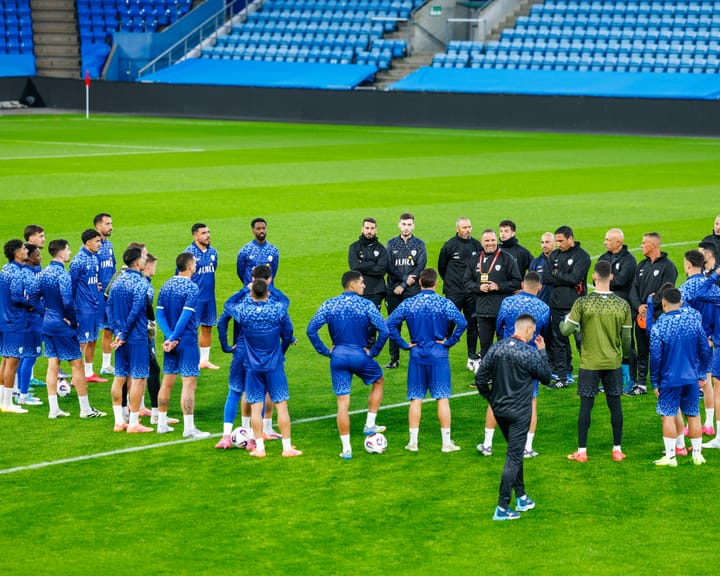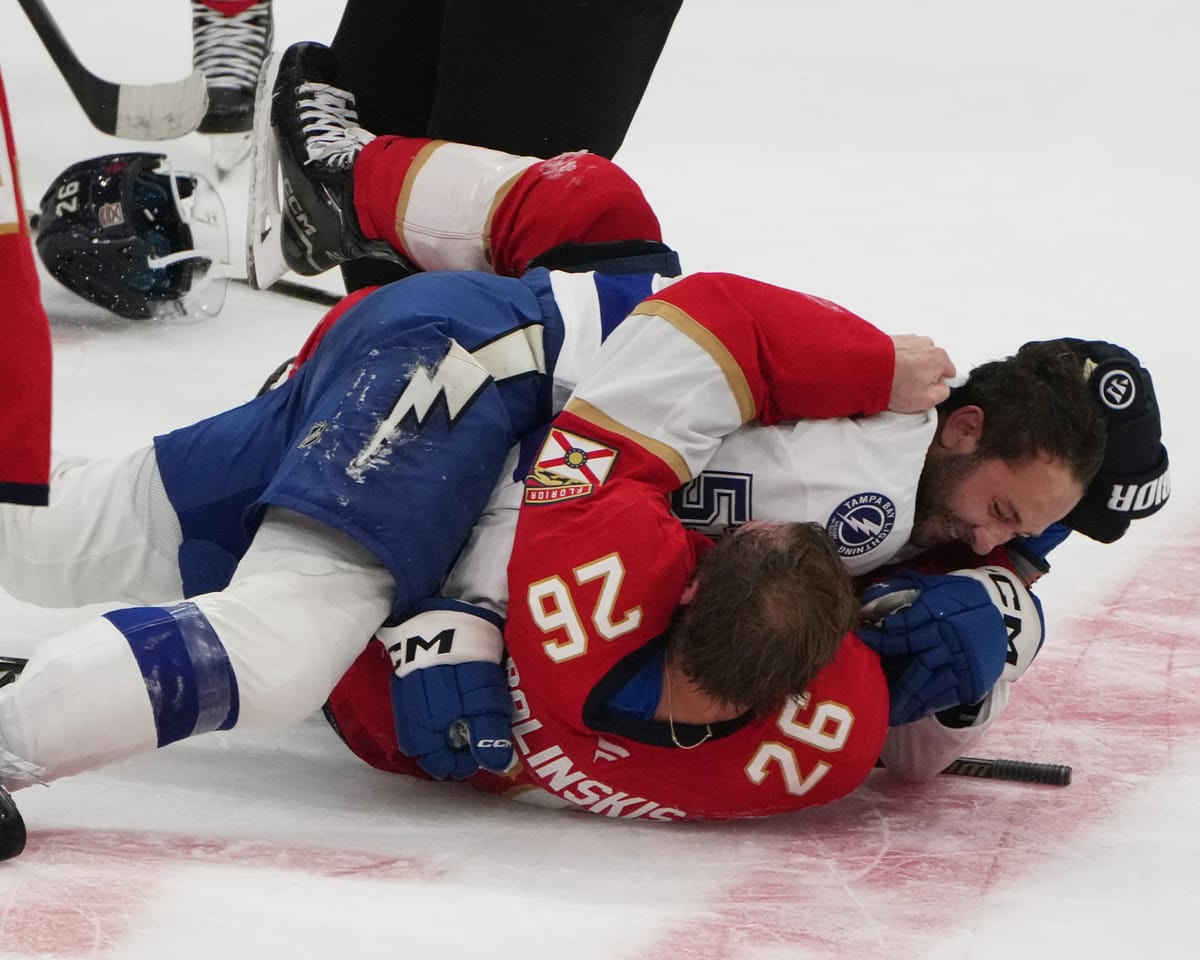The rivalry between the Florida Panthers and the Tampa Bay Lightning was once a minor regional affair, a clash between two southern expansion teams playing to sparse crowds with little fanfare. However, in just a few years, it has transformed into one of the most intense and contentious feuds in hockey, exposing underlying issues of favoritism, inconsistent discipline, and deep-seated divisions within the NHL.
Preseason hockey is typically inconsequential by nature—a series of routine scrimmages that even dedicated fans barely pay attention to ahead of the regular season. Yet, last week, the Panthers and Lightning turned two exhibition games into chaotic, penalty-filled spectacles: a combined 114 infractions worth nearly 500 penalty minutes, 16 game misconducts, and one ejected player who still managed to record an assist on a disputed goal. The sheer chaos before the season even began has prompted uncomfortable discussions about the sport’s integrity.
The trouble started last Thursday when Florida’s AJ Greer landed a blindsided punch to the head of Tampa’s Brandon Hagel—a move tied to their playoff clash last spring, when Hagel’s questionable hit on Panthers captain Aleksander Barkov led to a retaliatory strike from Florida defenseman Aaron Ekblad that left Hagel injured. Greer’s actions, punished with just a $2,000 fine, violated an unwritten rule in hockey: you never target a player with a history of concussions, especially one you have previously hurt.
In response, Tampa fielded a roster filled with minor-league enforcers on Saturday, turning the game into a series of retaliatory skirmishes. The league’s disciplinary measures? Heavy penalties for the Lightning, none for the Panthers.
The ugly incidents reignited long-standing skepticism about fairness in NHL discipline. The Panthers’ ties to key league figures only deepen the controversy. Colin Campbell, the NHL’s director of hockey operations, has long been a influential figure—and his son is a minority owner and assistant general manager of the Panthers. George Parros, head of player safety, is a former Panther himself. A decade ago, leaked emails showed Campbell criticizing referees for not favoring Florida. Little appears to have changed since.
To many across the league, this recent eruption felt like a familiar story—yet another example of hockey’s entrenched power structure enforcing unequal standards.
The animosity has been building for years. For much of their history, the Panthers were an afterthought, eclipsed by the Lightning, who secured their first of three Stanley Cup victories in 2004. But after acquiring Matthew Tkachuk—a skilled yet antagonizing forward—and hiring a coach who embraced unrestrained play, Florida transformed almost overnight into a notoriously aggressive team. They became notorious for provoking opponents, pushing boundaries after whistles, and reveling in their role as hockey’s disruptors.
Tampa—by contrast—remains one of the league’s most accomplished franchises, unwilling to cede ground. The result has been a volatile, escalating conflict that reflects deeper tensions within the NHL.
Read next

"Fluffed Up: How Modern Tennis Balls Lead to Frustration and Injury"
Daniil Medvedev quickly realized he was in a difficult position at Roland Garros. Facing Britain’s Cameron Norrie in the opening round, he struggled to find his rhythm.
With his chances of progressing in one of the sport’s most prestigious events slipping away, the 29-year-old decided on an unusual

Manchester bids heartfelt farewell to beloved boxer Ricky 'the people's champion' Hatton
Thousands Gather in Manchester to Honor Ricky Hatton, Former World Champion Boxer
A large crowd filled the streets of Manchester on Friday to celebrate the life of Ricky Hatton, the former world champion boxer who passed away last month at the age of 46.
Hatton was widely admired in the

Heightened security and political strain loom over crucial Norway vs. Israel World Cup match
This will be the most heavily secured sports event in Norway since the 1994 Winter Olympics. Strict security measures are in place across Oslo, with a no-fly zone enforced over Ullevål Stadium. Amid the heightened precautions, it might be easy to overlook that Norway’s national team is close to

